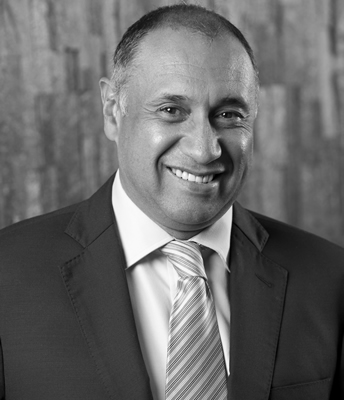Lombard Broker Partners

COVER Magazine spoke to Daryl De Vos, Head of Lombard Broker Partners, about their recent rebrand and expansion of their footprint across the country
Tony: They say change is the only constant and we are exploring change at Lombard today. Lombard Commercial is rebranding to Lombard partners. Please tell us a bit as to what prompted this change?
Daryl: Yes, Lombard commercial as we know it was started about six years ago, with a focus being on writing business from the independent brokers, only within the
commercial space. In the last 18 months we’ve decided that, in order to scale up the business, we needed to look wider than just the independent broker commercial space. So what we’ve done is, we’ve since started doing business with the global brokers. And we have also gone into two other areas, being hospitality and personal lines. A big part of the change was driven out of the fact that we did not want to be pigeonholed as a commercial underwriter only, but more as a general underwriter.
So we created divisions within what will be known as Lombard Broker Partners. We will have commercial, personal lines, hospitality and any other new lines of
business that will come on later. Then we’ve also got some UMA business from UMA’s that do commercial business on our behalf, as a further division. In this way we start creating focus where the commercial guys only focus on commercial, personalised on personal and hospitality on hospitality. The big driver of the change was to get out of the pigeonhole of only being recognised as a commercial broker, a commercial underwriter. At the end of the day, we now consider ourselves a general underwriter.
Tony: And the strategy, is it still around brokers and brokers as your partners?
Daryl: Absolutely. We are only going to be dealing within the intermediate space, we have got no great desire at all to go the direct route. It’s all within the intermediate market.
Tony: In terms of the brokers, how has that worked for you in the past with regards to partnership and the various underwriters?
Daryl: Again, in the past, we’ve had a reasonable success, in that, in each of the markets that we operated in, we chose what brokers we wanted to work with, and we got support from those brokers. We felt that we needed to expand that by having people on the ground. In the past a lot of the business was run out of Johannesburg and everything happened from there. All the marketing and underwriting. We felt that we needed to adopt a decentralised approach, whereby we created regional offices. So we’ve got regional offices in Gauteng, KZN and we will soon have a regional office in the Western Cape, although we do have representation in the Western Cape at the moment.
However, with the advent of COVID and people working remotely, we decided we’ll just wait a little while and see how that develops over the next few months or the best part of this year before just running in and opening up a physical office. What we have found is having people on the ground, so to speak, and empowering those people to be able to make underwriting decisions, resulted in traction in the support we are getting outside of Gauteng.
“The big driver of the change was to get out of the pigeonhole of only being recognised as a commercial broker, a commercial underwriter. At
the end of the day, we now consider ourselves a general underwriter.”
So most of the business currently sits within Gauteng and under normal circumstances, because Gauteng is such a big market, you would expect that. We however certainly don’t believe that we’ve got anywhere near to sufficient traction out of the Western Cape and KZN since we’ve put people on the ground In those two markets.
We are certainly seeing a lot more activity around quote requests, and we have seen a lot more income being generated by having people on the ground. At the end of
the day, Durbanites want to work with Durbanites and Capetonians want to work with Capetonians. So we don’t want to just be the seagull that flies in and takes their
business and leaves. We want to add value to the local economies as well, by employing people and creating a presence within the local economies.
Tony: It sounds like it’s more than just relationship. It’s also from a claims and underwriting perspective.
Daryl: Yes, what we have done, and again it’s a process, is to start decentralising the day-to-day claims and underwriting processes into the region. Again, it’s a matter
of creating a relationship with your counterpart on the ground as opposed to trying to do it from Johannesburg. So if someone’s got a problem on a claim, they are able to meet face to face, obviously, COVID allowing that, to be able to sort out the problem as opposed to trying to do it far from Johannesburg. What we really want to do, is drive operational efficiencies within the regions, and have a fairly lean head office structure that is there to support the regions. Their main operation happens in the regions and the regions being empowered to make underwriting decisions and decisions around claims.
We still believe that there is place in the market for people empowered to make decisions, because it also enhances the service you’re able to give our brokers.

